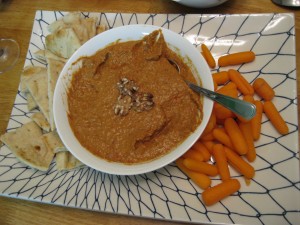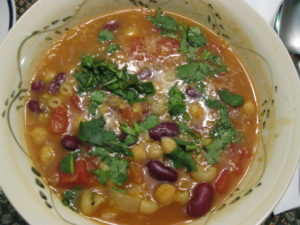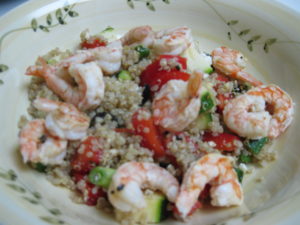What does progress look like?

I find that its very easy to fool yourself into thinking things, and others are sometimes happy to help you do it. I swear that I had myself convinced that no one besides me could see any grey in my hair. When I weighed a lot more, I never thought for a second that I was the size that I was. It’s easy to talk yourself in believing what you want to believe. For more reinforcement of my delusional behavior, read my previous post about sugar. I really did not think I was eating that much of it, and now totally I see that I was.
So, with this recent epiphany, I started to wonder if I was making any progress. I mean, iRun, Adidas, Tania and Lauren were giving me all this support and resources and my pace still seemed pretty consistent with what I always do. I am suppose to have faith in the program but I am a rational girl who really likes empirical data and history has shown that my “gut feel” approach works for lots of other situations (my work, my friends, guessing people’s age, etc) but it is totally inaccurate when it comes to gauging the realities of my life.
So I posed this question to Tania – What does progress look like? I have to say that it is a wonderful luxury to have a running coach who can provide feedback. I always thought I did not need that so much. I didn’t need or a running group at all, because I could just go out and do my thing and I would know progress when it came. But Tania is a great soundingboard and reality check, and she is so confident that her training plan will work, even on my”bonny lass” body, hich is really made to work the farm fields of some fiefdom during the Middle Ages in the British Isles and then go home to care for my 17 children, as I cook on a open fire while plucking a chicken.
She says I am improving and the micoach trends seems to be bearing this out. This is what she says
Looking at your easier runs, I would say that you don’t have major differences in pace. What I like is that even when you added in a new job, you sustained excellent training, pace and focus. Mileage is steady. Long runs are excellent. Then, when we added the speed work over the past few weeks, you are adapting, even with one slower day, you recover and come back to pace again on the next one.
She also said that we are going to begin the next phase of my training, which involves new things, of which I am not totally sure. One thing it will add is that I have to run a 5K race, which scares me as I have only ever participated in one race before.
So, I guess I am seeing progress but I think what Tania is really saying is that I now have built a good enough running base on which to start a more focused approach to gaining speed. My body is adapting and more change is coming. Well, lets just add this next change to all the change in my personal life, the new eating regime (a very difficult thing for me) and now anothernew running phase. I am a person who loves change, but even I might be reaching my limit.
But then again, bring it on Tania. One more change won’t kill me and likely neither will the 2000+ more that will occur, if I am lucky, over the rest of my life. But lets be careful, as it might drive me into the arms of ice cream, my dear abandoned friend and life long support.


 tually, he’s been around for a few years but they made it official six weeks ago). She brought this dip with her and generously allowed me to keep the leftovers (I may have strong-armed her a bit).
tually, he’s been around for a few years but they made it official six weeks ago). She brought this dip with her and generously allowed me to keep the leftovers (I may have strong-armed her a bit).








 Our Magazine
Our Magazine
